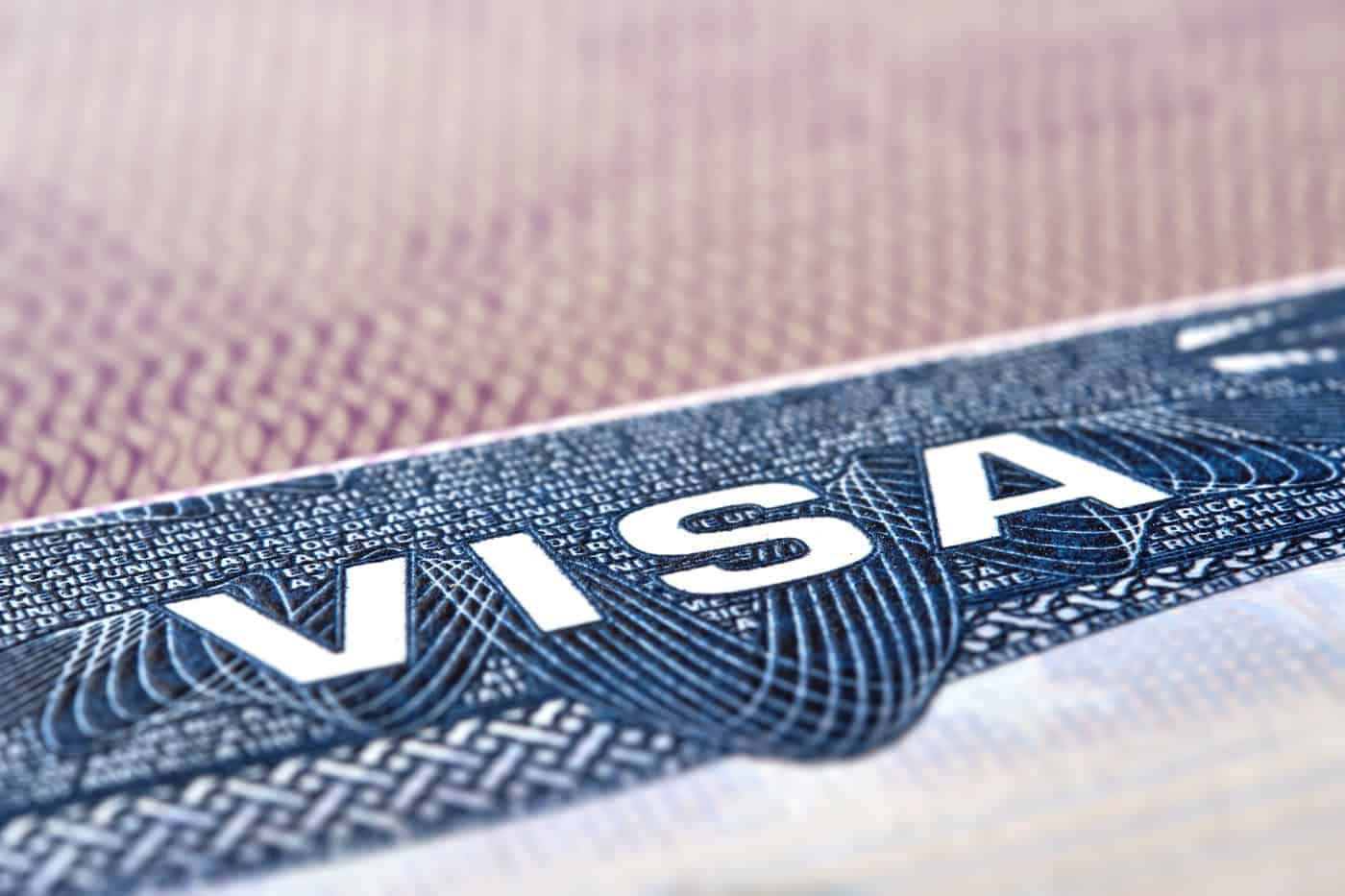
.svg)
The U.S. Department of State (DOS) has announced a new rule that would require some business and tourist visa applicants to pay a refundable bond of up to $15,000.
In a notice published in the Federal Register on Tuesday, the government outlined plans for a 12-month “visa bond” pilot program, set to take effect August 20, 2025. The policy targets travelers from countries with historically high visa overstay rates and limited screening and vetting systems. The bond is meant to serve as financial insurance that visitors will maintain their legal status and depart the United States on time.
The new policy revives a 2020 proposal from Trump’s first term that was never implemented due to the COVID-19 pandemic. That plan would have required bonds for travelers from two dozen countries with high overstay rates, mostly in Africa. The pilot is part of a broader push to tighten immigration rules, including travel bans affecting 19 countries, expanded social media screening for student visa applicants, and a new $250 “visa integrity fee” for most nonimmigrant visa applicants.
{{tip-component-1}}
{{newsletter-component}}
What Is the Visa Bond Program?
Under the program, certain B-1/B-2 visa applicants will be required to post a bond, ranging from $5,000 to $15,000, as a condition of entry. The bonds will be refunded if travelers depart the U.S. on time and comply with all visa terms.
The default bond amount is $10,000, with lower or higher amounts set at the discretion of U.S. consular officers based on the applicant’s risk profile and financial situation. Bonds will be posted via the U.S. Treasury’s pay.gov portal and automatically canceled upon confirmed departure.
The State Department says the bond requirement is meant to reduce visa overstays and encourage stronger screening from foreign governments. In 2023, more than 500,000 people overstayed their visas, according to the Department of Homeland Security.
Who Will Be Affected?
On August 5, 2025, the DOS released a list of affected countries. So far, it includes:
- Malawi
- Zambia
Proposed Visa Changes for Affected Travelers
If subject to the bond program, travelers will face new restrictions beyond the financial burden:
What This Means for Travelers
For those planning to visit the U.S. for business or tourism, especially from affected countries, this new rule adds significant costs and extra steps. While the government says the program is meant to improve visa compliance, it may end up discouraging legal travel and causing confusion during the visa process and at the border.
Cost Barriers for Tourists and Families
Requiring up to $15,000 in advance, even if refunded, creates a major obstacle for travelers from lower-income backgrounds, potentially making U.S. tourism inaccessible for many. Even though the bond is refundable, many families may not be able to afford it upfront. This creates an uneven system where only wealthier travelers can afford to visit the U.S.
Mixed-status families where some members are from affected countries may face difficult decisions about travel, potentially leading to family separations during important events, emergencies, or routine visits.
Shorter Visits and Tighter Itineraries
The 30-day maximum stay and single-entry restriction provide little flexibility for visitors. This creates particular challenges for business travelers who may need extended stays for complex negotiations or training, and for families planning longer visits with relatives in the U.S. This could make the U.S. a less appealing destination compared to countries with fewer restrictions.
Administrative Complexity
The bond process involves multiple steps, including online posting, designated departure points, and tracking compliance through departure records. Travelers unfamiliar with U.S. systems may struggle to navigate these requirements, while technical errors in departure tracking systems could result in wrongful bond forfeitures.
What This Means for Businesses
U.S. businesses that rely on international partnerships, clients, or expertise face several operational and strategic challenges under this program that could impact competitiveness and growth.
Complications for Business Travel
U.S. companies that invite foreign clients or partners may find it harder to secure participation in meetings, conferences, and training. The financial barrier and administrative complexity may discourage business travel, potentially driving business elsewhere. This is especially concerning for industries that depend on international collaboration and innovation.
Administrative and Legal Burdens
HR teams and recruiters must now monitor which countries are impacted and may need to assist international visitors with understanding bond requirements. This could include advancing bond payments, providing documentation to support exceptional circumstances, or helping navigate the complex posting and cancellation procedures. These new responsibilities create administrative costs and require specialized knowledge.
Operational Disruptions
The 30-day stay limitation is particularly problematic for industries requiring longer-term business engagements, such as manufacturing, technology transfer, complex negotiations, or training programs that traditionally might require extended visits. Companies may need to restructure their international engagement strategies or absorb higher costs for multiple shorter trips.
Broader Economic and Social Impact
Tourism and Hospitality
Reduced travel from affected countries could hurt U.S. tourism hubs, hotels, and businesses that depend on international visitors. The U.S. already saw a 20% year-over-year drop in visitors from Canada and Mexico, and these new rules may deepen that trend.
Cultural Exchange and Public Perception
The program may be seen as part of a broader unwelcoming stance toward foreigners, particularly from developing nations. This could impact the U.S.’s ability to attract students, tourists, and future talent, undermining both soft power and innovation.
Diplomatic Fallout
Requiring bonds from specific countries may strain diplomatic ties and could lead to reciprocal restrictions on Americans traveling abroad. While intended to push governments to improve screening and documentation, the program could undermine foreign policy goals.
Looking Ahead
During the 12-month pilot period, the government will assess the operational feasibility of the bond system, its effectiveness in reducing overstays, and the administrative burden on government agencies.
Legal challenges may arise if the policy disproportionately affects certain ethnic or religious groups. Immigration advocates and experts are already raising concerns about equity, access, and due process.
What You Can Do
For travelers
- Monitor travel.state.gov for updates.
- Check if your country is listed and understand the bond requirements.
- Consider consulting an immigration attorney for guidance on how these changes might affect your specific situation and travel plans.
For businesses
- Review international travel plans involving clients or staff from Malawi, Zambia, and other countries with high overstay rates.
- Prepare internal workflows to assist with bond logistics if needed.
- Track policy changes to adjust meeting, training, or recruitment strategies.
{{cta-component-center-aligned}}
On August 5, 2025, the DOS released the list of countries affected by the new visa bond policy. So far it includes Malawi and Zambia.
.png)
.png)
.png)









.svg)
.avif)